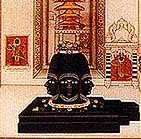Roots of a would-be bomber
The magistrate talked about Thomas Jefferson and told the group that they could run for office — only the presidency and the vice-presidency were off limits, according to a tape recording of the proceedings in a Bridgeport, Connecticut, courtroom last year, on April 17. On her instructions, they raised their right hands and repeated the oath of citizenship.
One man in the group was the Pakistani-born Faisal Shahzad, whose father is a retired vice-air marshal, affording him a special status in Pakistan, where the military is the most powerful and influential institution.
On Saturday, authorities said, Shahzad drove a Nissan Pathfinder packed with explosives and detonators, leaving it in Times Square.
Shahzad was born in Pakistan in 1979, though there is some confusion over where.
Officials in Pakistan said it was in Nowshera, an area in northern Pakistan known for its Afghan refugee camps. But on a university application Shahzad had filled out and that was found in the maggotcovered garbage outside his former house in Connecticut on Tuesday, he listed Karachi.
Shahzad apparently went back and forth to Pakistan often, returning most recently
A Pakistani official said Shahzad might have had affiliations with Ilyas Kashmiri, a militant linked to al Qaida who was formerly associated with Lashkar-e-Toiba, an antiIndia militant group once nurtured by the Pakistani state.
But friends said the family was well respected.
“Neither Faisal nor his family has ever had any links with any jihadist or religious organisation,” one friend said.
Another, a lawyer, said that “the family is in a state of shock,” adding that “they be
Shahzad's generation grew up in a Pakistan where alcohol had been banned and Islam had been forced into schools and communities as a doctrine and a national glue.

"It's not that they don't speak English or aren't skilled," a Pakistani official explained. "But in their hearts and in their minds they reject the West. They can't see a world where they live together; there's only one way, one right way ."
At 29, Faisal had spent a decade in the US, collecting a bachelor's degree and a master's degree and landing a job with a Connecticut financial marketing company .
He had obtained citizenship through marriage to a woman who was born in Colorado -the authorities say she and their two young children are still in Pakistan, where they believe he was trained in making bombs last year in Waziristan.
Shahzad fits the profile of many Pakistanis in the US: educated and with a higher income than the population as a whole, and often in professional or management jobs. His brother is a mechanical engineer in Canada.
Shahzad’s father, Bahar-ulHaq, hurriedly vacated the family home in Peshawar late on Tuesday to avoid attention, according to Pakistan’s The News newspaper. Witnesses said he packed some belongings in a vehicle and left with family members, it said.
Shahzad’s family is from the northwestern farming village of Mohib Banda, home to 5,000 people, in the Pabbi district. A tiny, dusty road from a
nearby highway named after a soldier who was killed in fighting against the Taliban in 2007 snakes through fields of wheat, maize and rice crops to the village.Residents expressed disbelief on learning of Shahzad’s involvement in the bombing attempt. “This is our son,” retired school teacher Nazirullah Khan told Reuters by telephone. “I recognised him. Last time when I met him, he didn’t have a beard. I attended his wedding.” In nearly a dozen years in America, Shahzad had gone to school, held steady jobs, bought and sold real estate, and kept his immigration status in good order, giving no sign to those he interacted with that he would try to wreak havoc in one of the world’s most crowded places, Times Square.
His neighbours in Connecticut said the things neighbours always say about someone who suddenly turns up in the headlines — he was quiet, he was polite, he went jogging late at night.
Like so many others, he lost a house to foreclosure — a real estate broker who helped him buy the house, in Shelton, Connecticut, in 2004 remembered that Shahzad did not like President George W. Bush or the Iraq war.
“I didn’t take it for much,” said the broker, Igor Djuric, “because around that time not many people did.”
(abridged)
